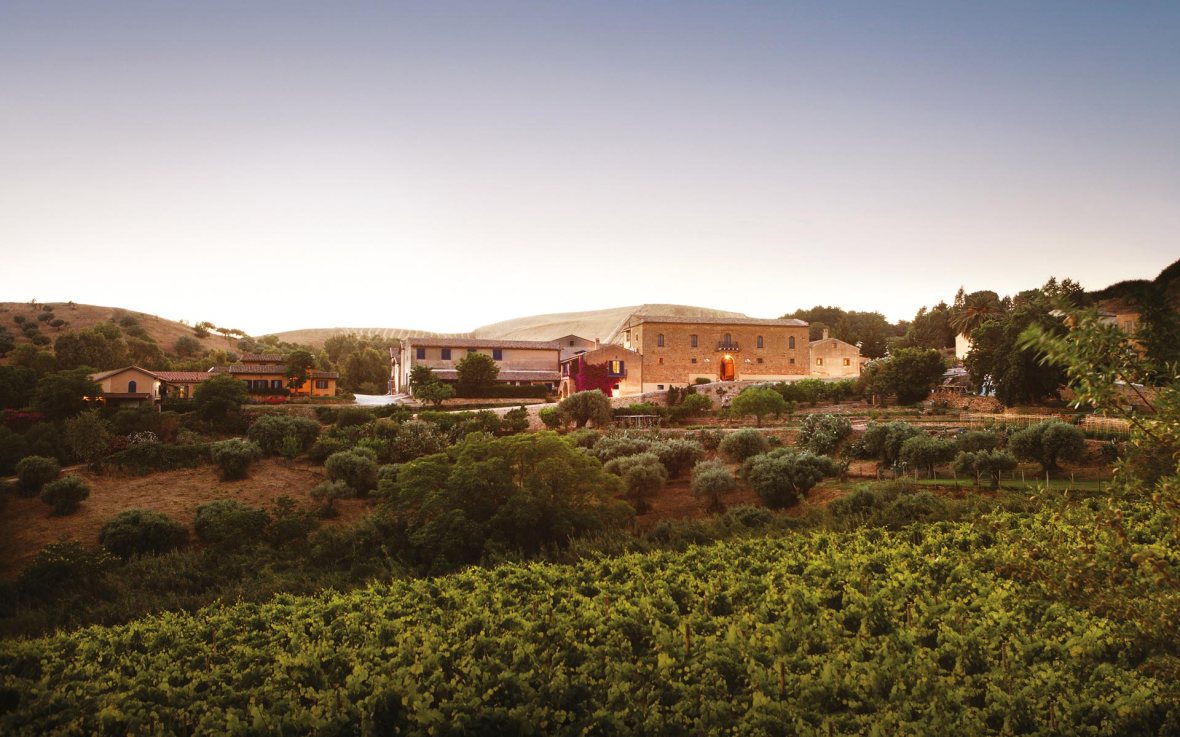
Tenuta Regaleali in Sicily. Photo Credit: Tasca d’Almerita
Sicilia DOC is a consortium of 300 Sicilian+ wine producers with a rich history of winemaking and a connection to the ecology of the island via a significant commitment to organics. In fact, Sicily winemakers are responsible for 38% of organically cultivated wine in all of all Italy.
Alberto Tasca is a member of the board of Sicilia DOC. He’s also the seventh-generation of a winemaking family with a legendary history. In his work on his own estates as well as with the consortium, Tasca has a reputation for championing indigenous grapes and preservation of the Sicilian ecosystem. I had the opportunity to converse with Tasca about his perspective.
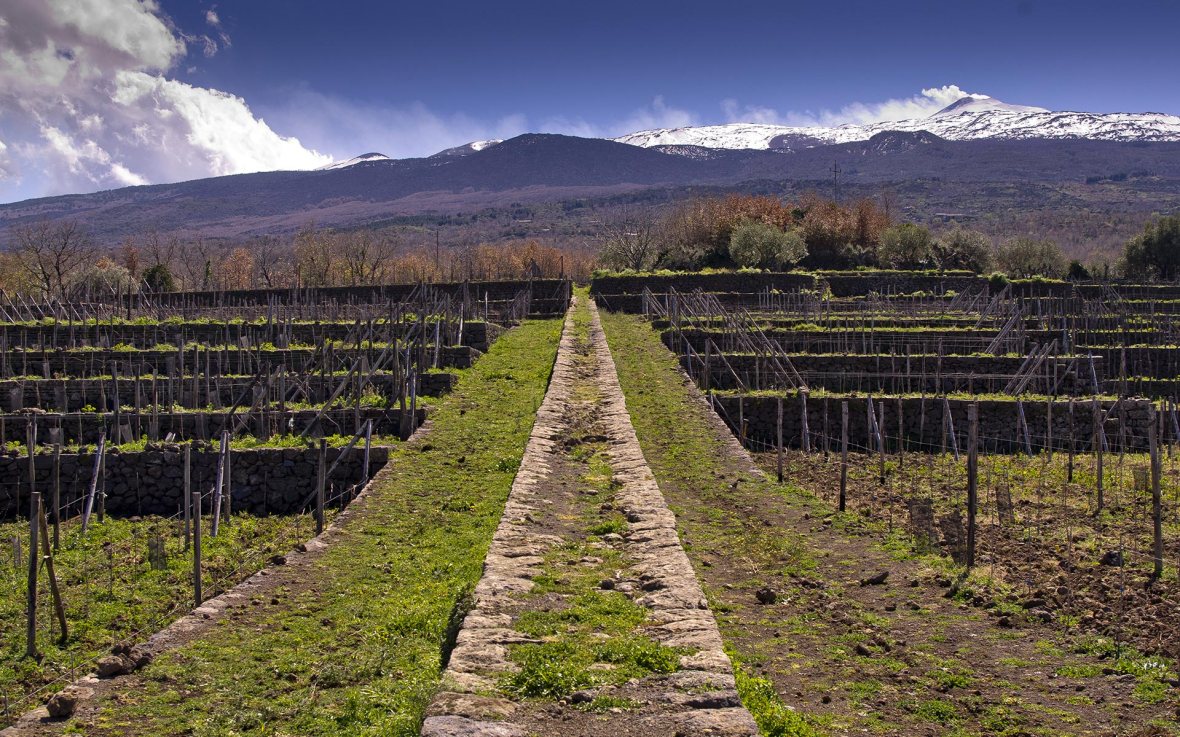
Tenuta Tascante in Mt. Etna, Sicily. Photo Credit: Tasca D’Almerita
Jill Barth: What is the landscape for production of indigenous grapes in Sicily? Are producers tending towards native grapes or international varieties?
Alberto Tasca: In the 1990s, we experienced a big boom of international grapes, so it became really important to let people “read” the potential attitude of Sicily. In the last two decades, producers have placed more of a focus on local varieties. Sicily is a continent of diversity and we have great wines production all over the island.
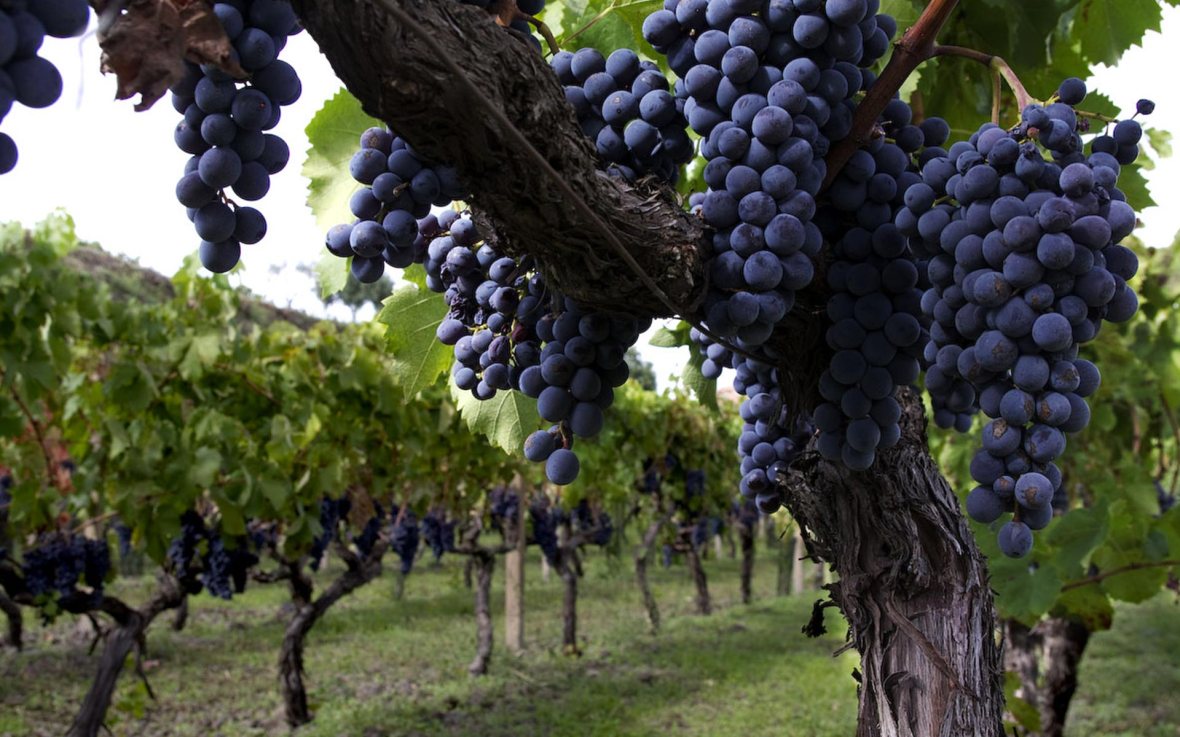
Tenuta Tascante in Mt. Etna, Sicily. Photo Credit: Tasca D’Almerita
JB: Is Glycophosphate used in Sicilian vineyards? This chemical is being examined in American vineyards and French winemakers are looking at a ban.
AT: In recent years, organic wine production has grown tremendously as producers seek to avoid using pesticides, herbicides and fungicides (i.e. Glycophosphate) that strip the soil of minerals essential to its health and throw the natural harmony of the vineyard off balance.
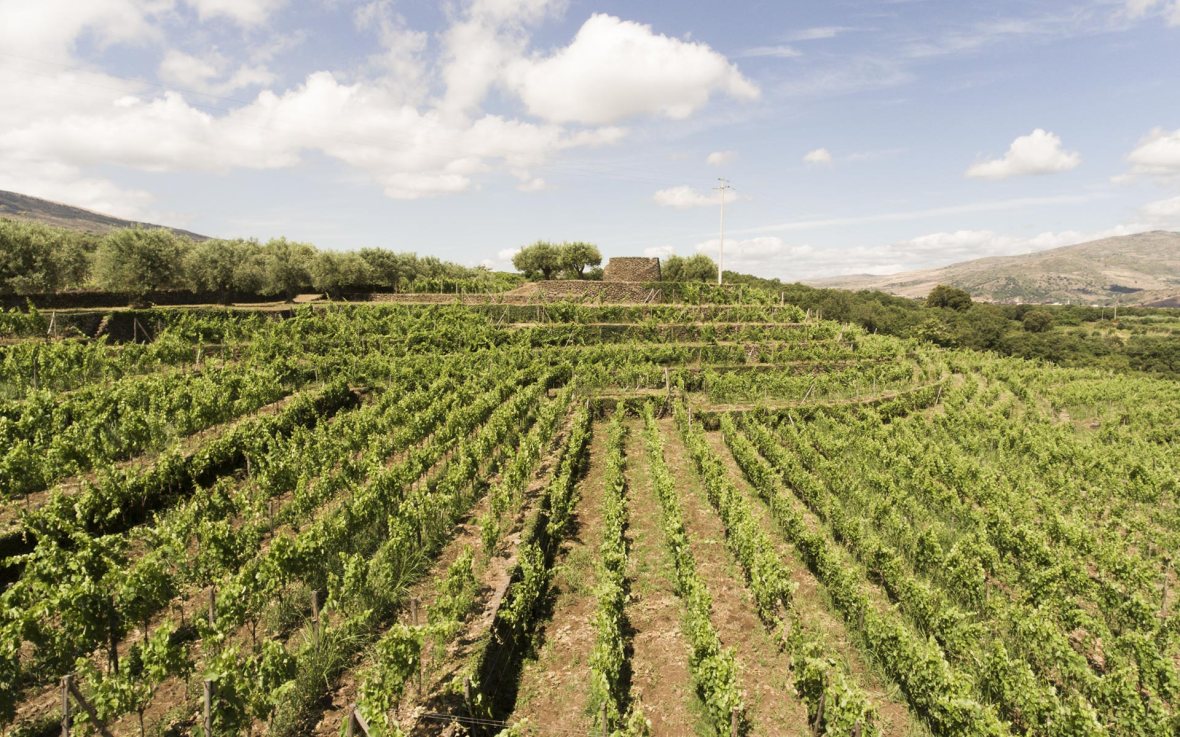
Tenuta Tascante in Mt. Etna, Sicily. Photo Credit: Tasca D’Almerita
JB: What are the key sustainability measures in your vineyards?
AT: Over the last ten years, we have been working hard to build a safe protocol on sustainable vines growing and winemaking. Our benchmark is the organic protocol: we can use only products that have an impact lower or equal to the organic protocol. But what is more important is that we analyze every impact of our actions and we work hard to improve our methods and reduce our impact everywhere.
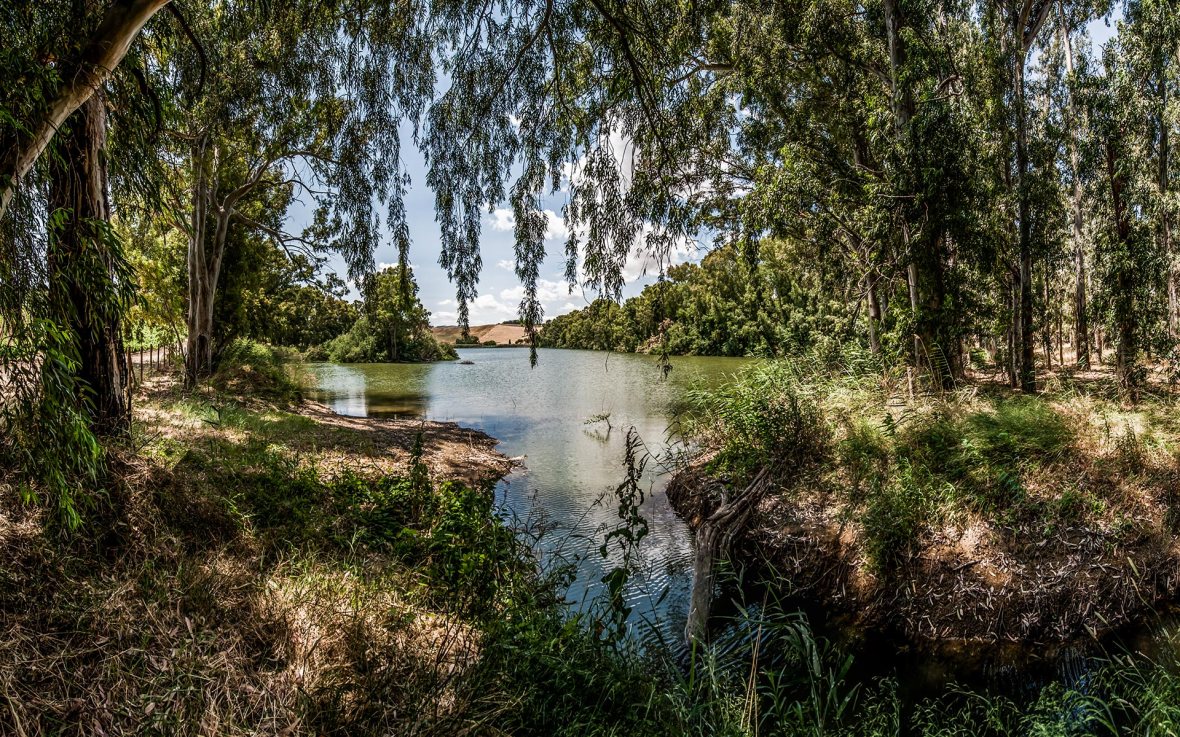
Tenuta Regaleali in central Sicily. Photo Credit: Tasca D’Almerita
JB: Please speak to wine culturally, in Sicily. Please describe the sights, smells and sounds of your vineyard.
AT: Sicily is a treasure trove with diverse types of soil, microclimate, anthropologically strong culture, and indigenous varieties. Sicily is full of colors, sounds, and passionate people. The region has roughly 300 days of sunshine per year, temperate Mediterranean influences, island winds that protect against frost and mildew, and one of the longest harvests on the planet — lasting more than 90 days, spanning one season to the next. Our challenge is to continue producing high-quality Sicily DOC wines that respect the environment and its natural balance.
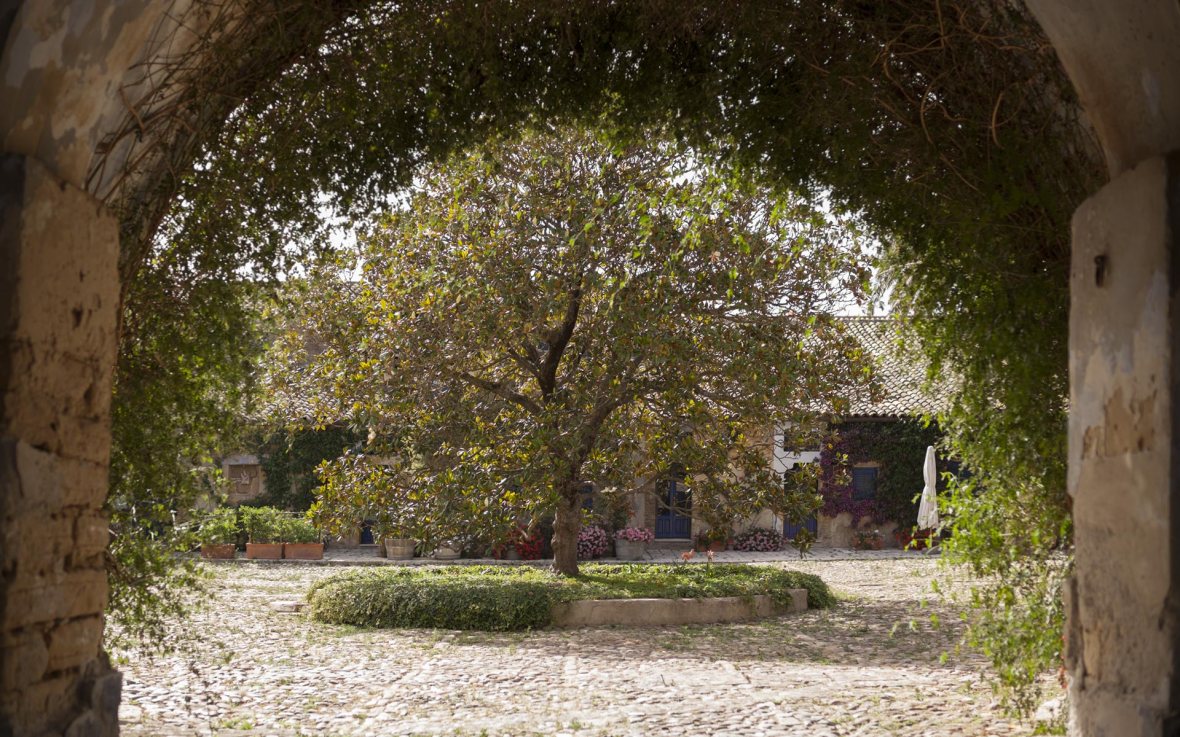
Tenuta Regaleali in central Sicily. Photo Credit: Tasca d’Almerita
JB: What are your biggest concerns for the environment of Sicilian vineyards?
AT: Our aim is to bring more and more traditional cultivation closer to organic farming and to guarantee high-quality product yields while respecting the environment. Furthermore, it will be necessary to develop new agricultural systems that are alternative to viticulture, capable of preserving flora, fauna, and forestry.
Wines to try, both from Tenuta Tascante (Tasca + Etna)
Tenuta Tascante Nerello Mascalese “Ghiaia Nera” Enta DOC 2016 ($21) Nerello Mascalese is a dark-skinned varietal that thrives on the volcanic slopes of Mt. Etna.
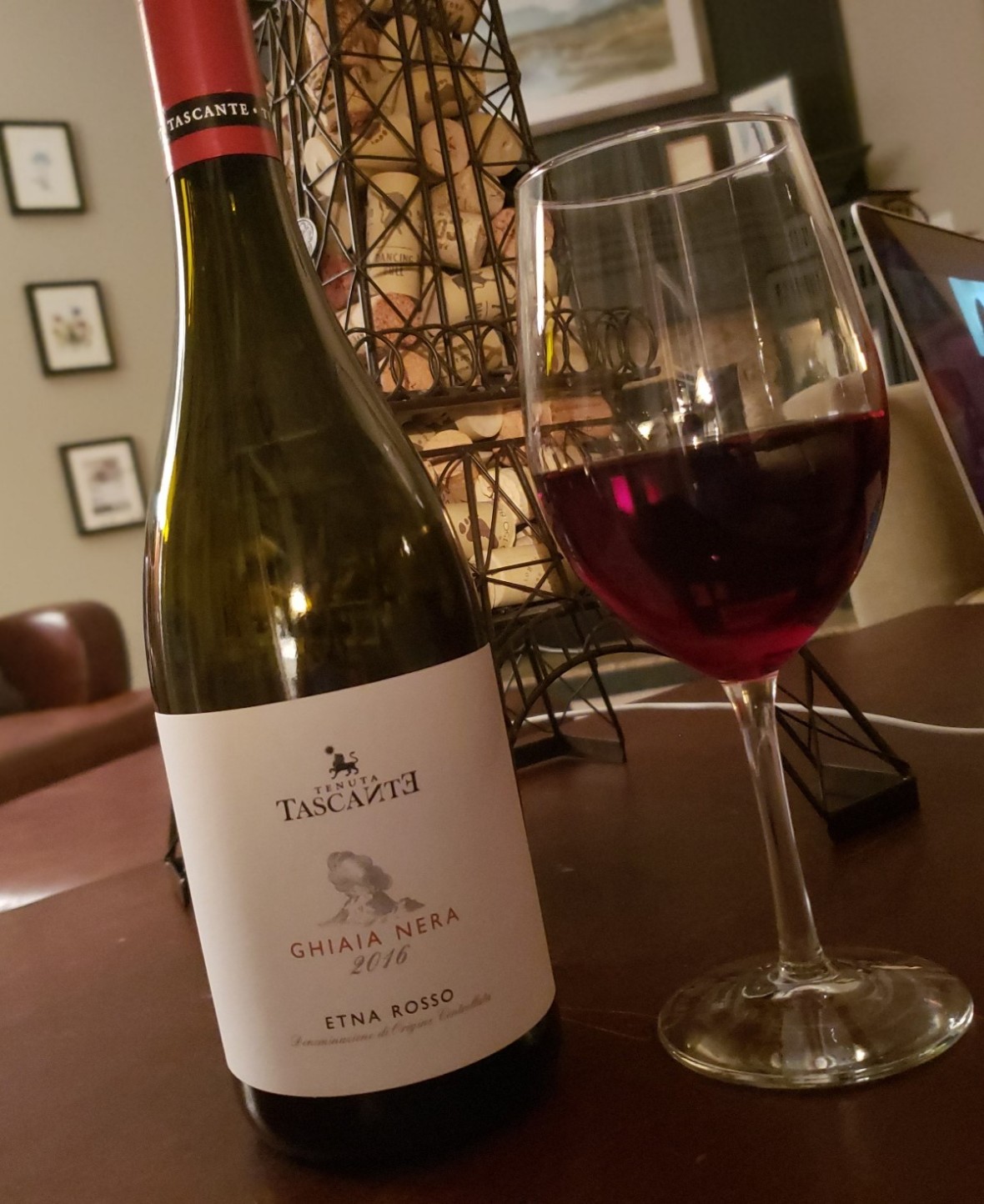
Tenuta Tascante Carricante “Buonora” Etna Bianco DOC 2017 ($21) Ancient and indigenous to Sicily’s Mt. Etna landscape, Carricante is considered “rediscovered” — despite a thousand-year history on the island.
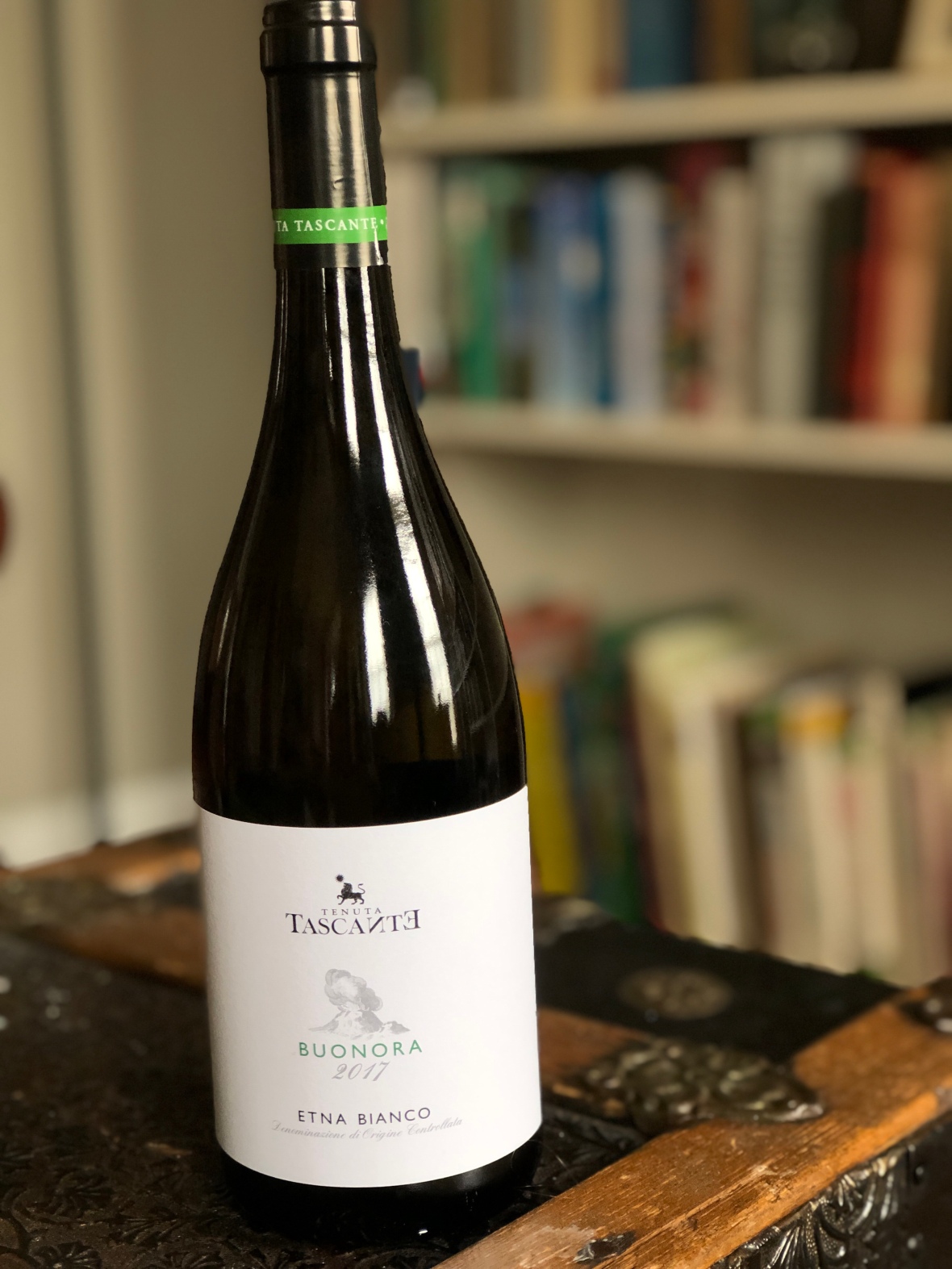
Italian Food, Wine & Travel
Our Italian Food, Wine and Travel writing group has congregated around the topic of wines produced on Italy’s islands. You can find the invitation post here, which is from me as the lucky host this month! Please join me and the following writers as we share the process of writing our stories, rich with details about the food, wine and trips that inspired us.
Steven from Steven’s Wine and Food Blog features Sicilian Pasta con le Sarde Wine Pairing Linda from My Full Wine Glass offers From Sardegna to Sicilia by Sea – Two Pairings Pinny from Chinese Food and Wine Pairings explores Sicily’s Marsala Wine – A New Product (Wine) Life Cycle that Started in the 18th Century but Continues to Thrive Today! Camilla from Culinary Adventures with Camilla recollects Island Memories, Slow-Roasted Lamb, and Cannonau Di Sardegna. Lynn from Savor The Harvest is in the mood for Italian Island Wine Speak with Vinisola Cindy from Grape Experiences reveals Discovering Liquid Gold from Sardinia and Sicily at Chicago’s Coda di Volpe. Jennifer from Vino Travels tells the story of The Cultural Heritage of Mamuthone and Cannonau of Cantina Giuseppe Sedilesu. Susannah from Avvinare invites readers to Discover Aleatico from the island of Elba. Wendy from A Day In the Life on the Farm makes Oven Roasted Salmon with Tarragon Tartar Sauce paired with a Sicilian Grillo. Lauren from The Swirling Dervish shares Island Wines of Italy: Alghero Torbato from Sardegna. Gwen from Wine Predator features Island Wines of Italy: 3 from Sicily Paired with Pizza. Jeff from FoodWineClick! is Dreaming of Italian Islands While We Wait for Spring. Martin from ENOFYLZ Wine Blog tempts with Sardinian Vermentino di Gallura Paired With Shrimp and Asparagus Risotto. Nicole from Somm’s Table crafts A Passion for Sicily with Passopisciaro: An Interview with Sarah H. Bray, Part 1. Jane from Always Ravenous is Tasting and Pairing Sicilian Wine From Mount Etna.
Cynthia and Pierre tell How a Wine Economists Conference Led Us to Wine from the Venice Lagoon.
Our hosts Jill and Jason at L’Occasion shares ‘300 Days of Sunshine’: The Vineyards of Sicilia DOC Interview with Alberto Tasca.

You’ve painted a beautiful picture of Sicily and its many personalities. I was surprised to learn that the harvest runs for such an extended period of time – lends new meaning to the term “all hands on deck.” Thanks for hosting this month and inspiring us to indulge our island wanderlust!
LikeLike
So glad you brought up the use of Glycophosphate in the interview – such a hot topic in viticulture right now. The Etna Rosso seems so young and fresh!
LikeLike
It is fascinating!
LikeLike
Your question about sights, smells, and sounds… I’m tucking that away to take to properties I visit. You can feel Tasca’s passion in his answer to that and your other questions. Kudos to people like him for being champions of their environment!
LikeLike
I want to be IN the vineyard!
LikeLike
Such an interesting interview. Really wonderful to learn more about the sustainability movements in Sicily.
LikeLike
Thanks Nicole!
LikeLike
Interesting interview, 300 days of sunshine per year is my kind of place. I also highlighted Sicilian wine from Mount Etna and look forward to tasting more wines from the region including Tenuta Tascante. Thanks for hosting and choosing such a great topic!
LikeLiked by 1 person
Thanks Jane!
LikeLike
I long to go to Sicily Jill and your article is fascinating, especially that factoid re: Sicilian winemakers being responsible for 38% of organically cultivated wine in all of all Italy! Thanks for the introduction to Tasca!
LikeLike
I met Giuseppe Tasca about a year ago. Really loved tasting through their portfolio. Thanks for sharing Alberto’s interview.
LikeLike
That’s cool! Lucky you!
LikeLike